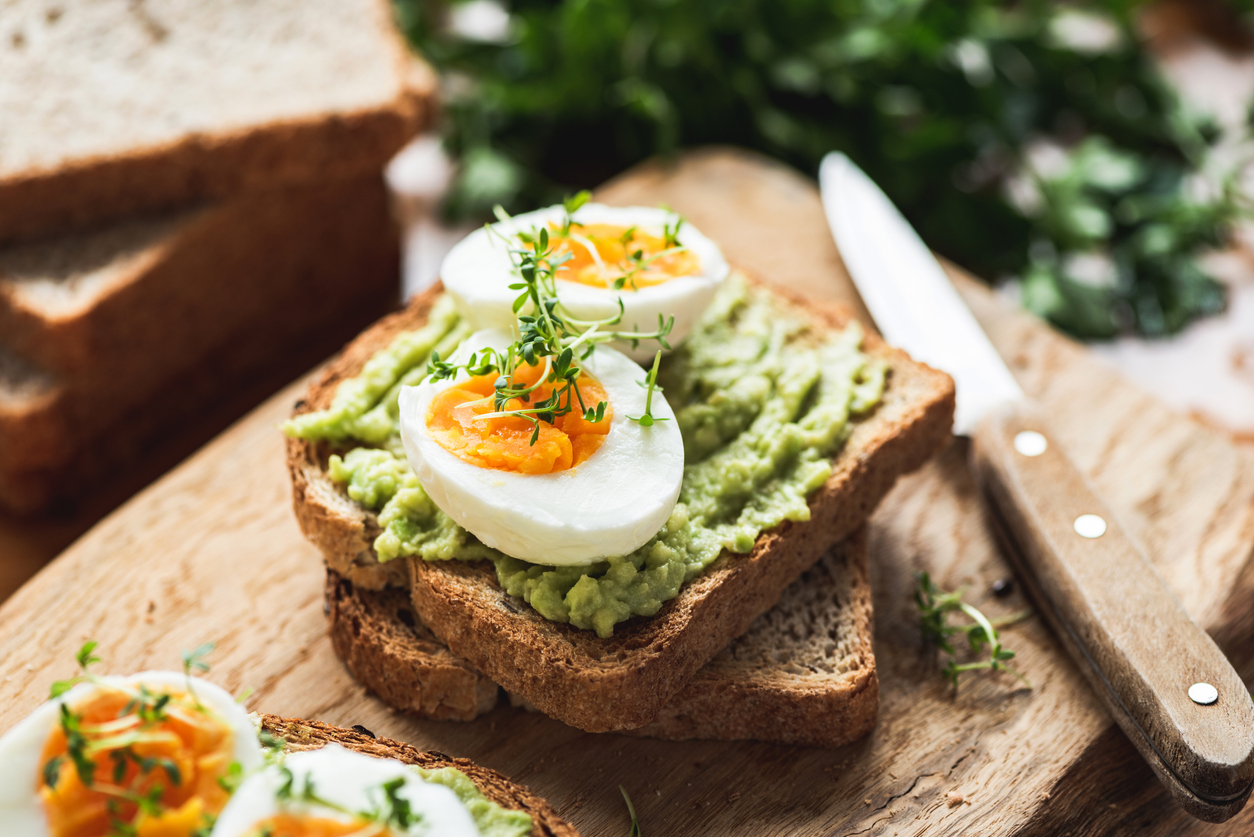5 “Bad” Habits That Are Actually Good for You, According to Doctors

All too often, things we once believed were good for us turn out to be health hazards. For example, coconut oil—once hailed as a healthier alternative to other types of fat—turns out to come with all the cardiovascular pitfalls of its peers. Similarly, agave sweeteners—once viewed as a healthier replacement for table sugar—are higher in calories and no less likely to cause insulin resistance. Thankfully, the pendulum can also swing in the other direction: Occasionally, we learn that health habits we once considered “bad” are actually beneficial.
Best Life reached out to a handful of doctors to find out which habits that have gotten a bad rap over the years are better for you than you’d think. Reach on to learn which five “bad” habits it may be time to reconsider, according to the experts.
READ THIS NEXT: Eating This After 65 Can Add Years to Your Life, New Study Says.
1
Skipping meals

Conventional wisdom tells us that we need three square meals a day (plus snacks!) to be healthy. However, according to K. Mitchell Naficy, MD, a family physician with over 29 years of clinical experience, eating less frequently can be beneficial.
“Intermittent fasting, which involves eating only during certain hours of the day, is becoming increasingly popular,” he tells Best Life. “While it may seem like a bad idea to skip meals, it has actually been linked with numerous health benefits, such as weight loss, improved insulin sensitivity, and improved energy levels.”
READ THIS NEXT: Doing This at Night Can Boost Your Memory, New Study Says.
2
Eating red meat

Though many experts advise eating a largely plant-based diet, Kellie K. Middleton, MD, MPH, an Atlanta-based orthopedic surgeon, says that “eating red meat occasionally can also be beneficial for your health.” The catch? Moderation is key.
Middleton says that’s because even though red meat is often high in saturated fat and cholesterol, it also “contains a number of vitamins and minerals that are important for overall health. These include iron, zinc, vitamin B12, and selenium—all of which are essential for the proper functioning of our bodies. Eating grass-fed beef can even reduce inflammation in the body and reduce the risk of chronic diseases like heart disease and cancer,” she adds.
3
Drinking coffee

Coffee is frequently viewed as a vice—something we need to cut back on or cut out entirely. But Naficy says that there are some major benefits to your daily cup of joe, especially if you drink it in moderation.
“Coffee can be seen as a bad choice for health, as it is a caffeinated beverage that can disrupt sleep and raise blood pressure,” he explains. “However, coffee is also packed with antioxidants and can have numerous benefits when consumed in moderation, such as improved alertness, increased energy levels, and improved mood.”
4
Eating high-fat foods

High-fat foods were once seen as seriously unhealthy, and we religiously replaced them with low-fat options. Today, we know that monounsaturated fats, such as those found in avocados, and polyunsaturated fats, such as those found in nuts, seeds, and certain oils, are an important part of a balanced diet.
“You need healthy fats (unsaturated fats), and lots of them!” Shana Johnson, MD, a physical medicine and rehabilitation physician, tells Best Life. “It’s excess sugar and carbs that lead to excess weight, diabetes, and cardiovascular risk factors. Fat gets a bad rap,” she says.
For more health news sent directly to your inbox, sign up for our daily newsletter.
5
Eating chocolate

For a long time now, health experts have touted the benefits of eating dark chocolate. “Dark chocolate (made with 70 percent or more cocoa) can be good for your health because it contains natural antioxidants called flavonoids, which have been linked to improved heart health and reduced inflammation,” says Gabriela Rodríguez Ruiz, MD, PhD, FACS, a board-certified bariatric surgeon at VIDA Wellness and Beauty. “Additionally, dark chocolate is rich in minerals like magnesium, iron, copper, zinc, and potassium—all important for proper cell functioning and overall health. It also contains stimulants like caffeine and theobromine, which may help boost mood and mental performance,” she explains.
Though a recent report called its health claims into question when it found certain brands were contaminated with lead and cadmium, experts say you can still enjoy dark chocolate and its health benefits without having to feel guilty about it—you just have to choose the right kind. “Just remember to check the nutrition label to ensure you’re getting a good quality product with minimal added sugar and other unhealthy ingredients. Enjoying a square or two of dark chocolate as part of a balanced diet can help you reach your health goals while still satisfying your sweet tooth!” says Rodríguez Ruiz.